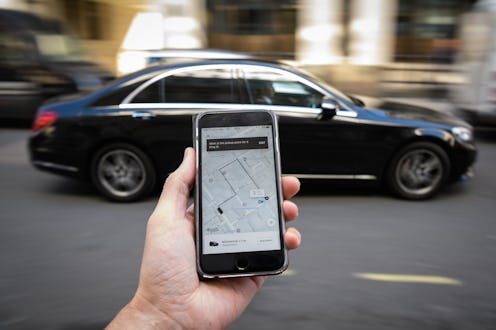
According to a New York Times report, a self-driving Uber car struck and killed a woman in Arizona on Sunday. The incident reportedly took place on Sunday night in Tempe where an unidentified pedestrian was hit by the autonomous car while she was crossing the street. The autonomous vehicle also had a human safety driver in it at the time. The Times said that this could be the first human death caused by a self-driving vehicle.
Uber initiated self-driving operations in Arizona and San Francisco as well as Pittsburgh and Toronto but as of the Sunday night incident, the company has ceased all operations in those areas for safety measures. On Twitter, Uber's CEO Dara Khosrowshahi said,
Some incredibly sad news out of Arizona. We're thinking of the victim's family as we work with local law enforcement to understand what happened.
Sarah Abboud, a spokesperson for Uber, released a similar statement on behalf of the company and said, "Our hearts go out to the victim’s family. We are fully cooperating with local authorities in their investigation of this incident."
On Twitter, Khosrowshahi's tweet was met with criticism and concern. For several observers, the technology of autonomous driving seemed to only confirm their worries about possible injuries and even deaths caused by self-driving cars. One Twitter told the Uber CEO is issue a better and more "proactive" apology.
The tragic news may not help Uber with further testing its self-driving cars as a 2016 poll by the American Automobile Association revealed that 78 percent of Americans are already afraid of riding a self-driving car. Most of the participants in the AAA poll cited safety and well-being as the primary reasons for not feeling comfortable with autonomous vehicles.
Although this seems to be the first time a human has died because of an autonomous car, this won't be the first time that an Uber self-driving vehicle was involved in a car crash. In March 2017, another car crash took place in Tempe, Arizona, when an Uber car was in self-driving mode with a human safety driver present. Thankfully, no one was hurt. The Tempe Police Department ruled that the autonomous car was not responsible for the collision.
The debate on whether self-driving cars bring more benefits or cause more harm, is one that seems to be a constant source of difference within and outside of the tech industry. Supporters of self-driving cars point to research that says autonomous cars carry little to no possibility of committing errors thanks to complicated calculations made by the machines.
Supporters also point to algorithmic operations within autonomous cars that could allow them to (kind of) talk to each other about potential congestion and reduce traffic as a result. Supporters also point to the possibility of better and more practical car design as a result of mainstreaming self-driving cars.
But critics of autonomous vehicles point to several key risks and dangers. For one, they're not a popular and affordable mode of transport. Affluent people may be the only ones able to afford these services. Then, of course, there's the fact that no technology is ever entirely perfect and thus, errors can very well be made by these cars. Plus, opponents note that currently there is little to no licensing infrastructure present for autonomous cars.
Perhaps one of the biggest concerns of those not-so-stoked by self-driving cars is that the more our surroundings become high-tech, the bigger the possibility that services and gadgets can be hacked. As researcher Dave Gershgorn pointed out in 2015, self-driving cars can be vulnerable to hacking. As Gershgorn said, these cars can be "tricked" into performing tasks never asked of them. With the Uber incident in Tempe, Arizona, the company may have even bigger and tougher questions to field.